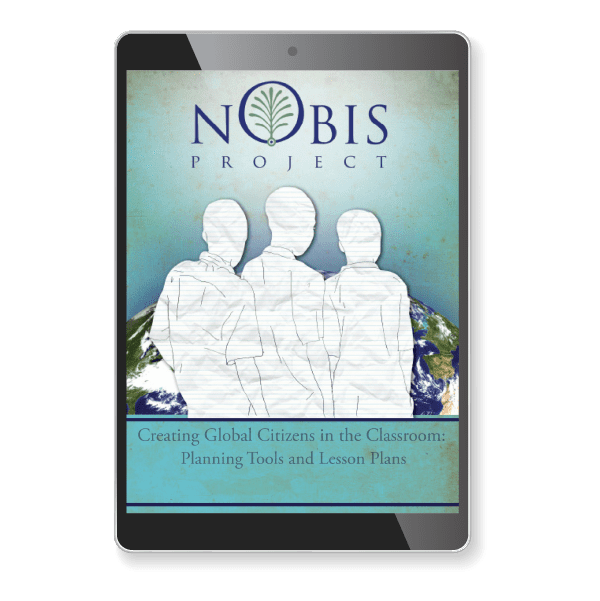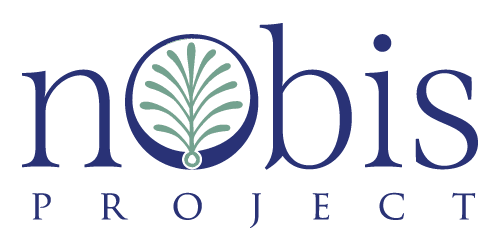Digital Storytelling: Podcasts & Prospective
Lesson Plan
Grade Level: 3-12
Topics:

Students serve in the critical role of citizen historian by accessing and documenting personal perspectives on a local history or event. During the process, students will learn about the role of storytelling in both self-expression and in preserving community knowledge, while seeking to gain personal perspective and experiences in a collective history or experience. Students will learn from and analyze podcasts, develop interviewing skills with the guidance of experts who produce podcasts, and develop, draft, and produce their own stories utilizing the writing process and feedback protocols.
Timeframe
3-5 sessions
Overview
Essential Questions:
- How can a personal narrative add depth to a collective history?
- How can we take a role in documenting multiple perspectives on a local history or a local event?
- How can students use digital storytelling to promote and serve a local community?
- Modified for older students: How does individual perspective reinforce or negate a collective history?
Lesson Objectives (Students will):
- Learn personal perspectives in a collective story or event.
- Practice interview skills and digital storytelling techniques.
- Create a podcast series to share with a wider audience.
Materials:
Teacher to provide the following:
- Interview Best Practices
- Interview Questions Overview
- Podcasting Overview
- Site specific resources based on desired theme and content of the project
Procedures
DISCUSSION / HOOK:
- Introduce the project to students by listening to a podcast that introduces the power and importance of storytelling or connects to a theme or topic relevant to the overall course.
- With students, brainstorm ideas about the role storytelling plays in communities.
- Individually or in small groups, have students analyze exemplar podcasts to garner best practices. As students listen, they should consider:
- What is the purpose?
- Who is the intended audience?
- What structure is utilized?
- This can be done at the beginning of the project or throughout the whole process
PROJECT OVERVIEW
Developing and Purpose and Scope
Facilitator will begin by guiding students in collaboratively developing a purpose and scope for the project:
- Facilitators may have in mind the story, community, or historical event that will be the focus of the project. Facilitator can present the story with a guided reading, historical document, or even one person’s perspective on the event. If applicable, the facilitator can ask students to journal or share about their own recollection of the story.
- Facilitators can also guide students through the process of identifying the story. Facilitator guides students in a brainstorming process to determine an important story, history, event, or community as the focus for the project. Facilitator can begin by posing a question to students such as: Whose story needs to be told in our community? or Can we think of any stories in which our community members may have a shared experience? Students can conduct informal interviews to ask community members what story they think needs to be told. After exhausting ideas, the facilitator can guide students in determining the most appropriate focus for the project.
- Potential Themes:
- Public opinion on a topic, e.g.: Voting in an election
- Personal perspective on an event, e.g.: pandemic perspectives
- Perspectives on local history, e.g.: a school, a community, a community place or tradition
- Essential Question: With input from students, develop an essential question and building block questions to explore during the project.
- Stakeholders: Generate a list of people or groups who would have a perspective or stake in the story.
Background research: It is important that students conduct preliminary research based on their topic before conducting the interview. This background research will ensure the student is informed when developing and conducting the interview and provide essential framing in the podcast.
INSTRUCTION / GUIDED PRACTICE
Part I: Conducting Interviews
- As a class, generate a list of interview best practices. Students should consider such factors as types of questions, posture, and attitude.
- Individually or in small groups, students should generate a list of interview questions. Develop a bank of questions for student-use.
- Students can practice peer-to-peer interviews or practice interviews during a ‘dinner time discussion’ for homework. Students can use interview questions established in class. Students should document the interview.
- After completion of the interview, students should engage in a reflective process about the interview experience.
- Individually or in pairs, students should conduct an interview with a source who can provide insight and perspective. Students should record the interview using voice memo or another recording app.
Part II: Podcasting How-to and Best practices
- Based on their prior podcast analysis, students should determine the best way to frame their interview. Students should include essential information gained in the research process. Students can use a storyboard to plan their podcast.
- Next, students will develop a script. Students can use feedback protocols or peer review of the script and incorporate feedback. Students should record materials to be used with interview clips.
- Students can mix and edit using Garageband, Voice Recorder, and Audacity, among a variety of recording apps.
(Students can practice using podcast technology with short demos)
Part III: Sharing the story
- Share podcasts with a wider audience- have students help brainstorm forums for their work which could include school or local news sources, blog, website, a local museum or historical society
- Allow ample opportunities for students to give and receive feedback
CLOSURE
- Share podcast series with a wider community audience
Assessment Criteria
- Feedback protocols for peer and facilitator use
- Rubric (can be student-generated, including collaboration feedback)
Modifications
Differentiation through collaboration or individual work. Students can record interviews without transcribing. Based on proficiency with research skills, the facilitator can provide research materials or have students conduct the research independently.
Lesson plan developed by Nobis Project. All rights reserved.
